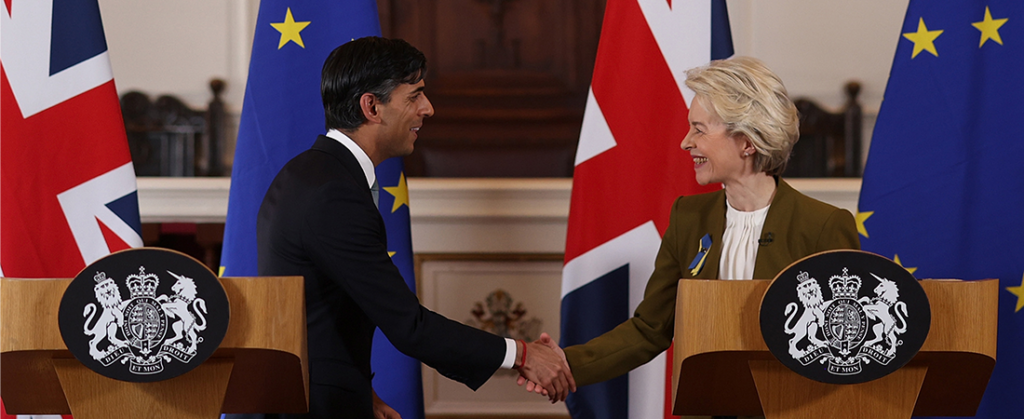Earlier this year, the Prime Minister set out his five priorities for 2023; prioritising the economy, the NHS, and immigration. However, what was most puzzling was the omission of the environment.
Sunak’s decision is even more striking in the face of the different environmental disasters that have since occurred: flash floods, heatwaves, and wildfires across almost every continent. Here in the UK, things are no different, earlier this summer, several areas across the country were issued with yellow weather warnings for “unusual” winds, whilst June 2023 was ranked as the hottest on record. These events have become the new norm, re-occurring with some variation on an annual basis, threatening communities around the world, and impacting the way in which we live our lives. The UK Risk Register reflects these changes, noting that “the influence of climate change on the increased likelihood and intensity of high temperature episodes is already being observed, and this increase will continue”.
It’s no surprise that voters therefore consistently rank climate change and the environment as a top priority. Recent research from More in Common underlines this, with the issue consistently ranking in the top three or four issues alongside the cost of living and support for the NHS. This includes red wall voters who are among the most supportive of the Government’s net zero target.
Conservative voters also overwhelmingly back the Government’s target of reaching net zero carbon emissions by 2050, by 73 per cent and YouGov polling from earlier this summer showed 71 per cent of the public support Net Zero commitments, with only 16 per cent in opposition. Of those 71 per cent, there is large support across all age ranges including those over 50, but with the strongest support amongst those aged between 18-24 and 25-49.
So why do the government’s priorities not reflect the public’s concerns? Whilst admittedly, there are other pressing political and economic priorities competing for attention, the environment is an area in which Sunak and the Government can continue to make meaningful changes, build on the success of previous Conservative Governments, and demonstrate shared values with the public.
Let’s not forget, that it was under the premiership of Theresa May that the Government introduced the target of reaching Net Zero by 2050 and announced an ambitious 25-year Environment Plan. Boris Johnson built on this, with his Government passing the landmark Environment Act 2021 and prioritising the COP26 Summit in Glasgow where he campaigned for long-lasting international changes.
David Cameron also sought to “make Britain the most energy-efficient country in Europe”, and lead “the greenest government ever”. Alongside the totemic decision to modernise the party’s logo to an oak tree, Cameron’s premiership saw a drive to transition away from coal, rising recycling rates, and it also played a crucial role in the Paris Climate Agreement.
Even before this, Edward Heath first created the Department for the Environment, whilst Margaret Thatcher was arguably the first leader to understand the importance of tackling climate change, making several speeches on the issue, most notably in 1989 at the United Nations. Thatcher would later go on to say that “the core of Conservative philosophy and of the case for protecting the environment are the same”.
Conservatism and the environment are therefore a partnership that goes hand in hand, and the failure by Sunak to prioritise the issue risks the party surrendering its environmental brand and undoing the years of progress by previous governments. It also explains why groups of MPs from across the Conservative Party are urging Rishi Sunak to prioritise the environment or risk losing the backing of voters.
It’s vital therefore that Sunak prioritises the environment in his next set of pledges, placing it as one of his top five. Doing so would send a clear message to voters that the environment remains a central priority for the government. It would also signal that Sunak is keen to build on the opportunities ahead of him and deliver long-lasting change.
Some of this is already happening, but there is a case for proceeding with policies and reforms at pace. For instance, the Energy Bill currently progressing through Parliament has merit, but it could go further by reforming the energy price cap and improving the ability to connect new renewable projects to the energy grid.
Elsewhere, Sunak could also reverse the ban on onshore wind, and embrace the green industrial revolution, prioritising Conservative values with a green growth agenda that could turbocharge the UK’s anaemic economy – all of which would send a clear signal to voters that the environment is a key issue. Sending such a signal would provide Sunak with the opportunity to lead the debate on how to pay for green measures, incentivising private investment and showing how it can be achieved in an affordable and Conservative way.
The core of Conservative philosophy and the case for protecting the environment are the same. The last 13 years of Conservative governments have seen historic leadership on the matter, but a failure to build on this, risks losing voters and also the issue to Labour for the foreseeable future.






